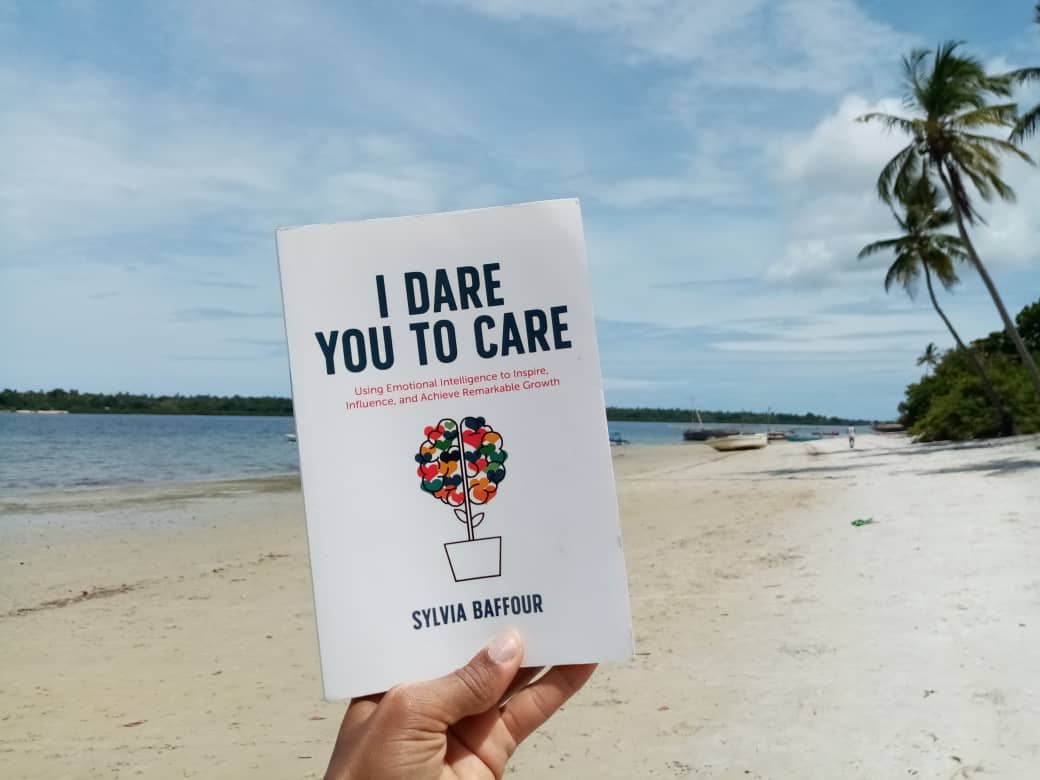
“We won’t get through this life unscathed, but with the right tools, the rough spots don’t have to be as painful.” A revelation and a picture from my friend living in Tanzania. She was on a much-needed weekend get-away for some alone time following the recent passing of both her grandmothers in the U.S. With her grief compounded by being so far away from her family, it was heartwarming to hear that I Dare You to Care became a helpful tool for her as she practiced some healthy grieving and empathy.
It’s no secret that we’ve all had to endure the pain of loss and for some, more than our fair share over the past year or so. The presence of the global pandemic only compounded the difficulty of our grieving experience. Maybe you’re the one who lost an important job opportunity that disappeared when we all had to hunker down. Maybe you’re the one who’s lost your full health as you continue to grapple with the long-term effects of the viral invasion on your body. Maybe you’re the one who lost a dear loved one and couldn’t even give them a fitting farewell marked by the comforting gathering of all those they cared most about while they were here on earth. No matter your loss, the reality is that grief is exhausting.
As I recently shared in the sixth episode of my podcast, I Dare You to Care, as we experience challenges and loss in our lives, we don’t want grief to have the last word. But it does get to have a say. It gets to have a say because grief is as much a part of the human experience as all the emotions we get to enjoy. And the reality is that our lives can’t possibly be filled with nothing but perfect moments. We’ve all heard many versions of the idea that it’s not what happens to us in life that matters, but how we chose to handle it. How we chose to handle our grief is no exception.
While some of our pain and losses can literally take our breath away, we can still find ways to avoid getting suffocated by our grief. Here are three emotional intelligence strategies that can help.
EMBRACE THE PAIN OF LOSS
It’s important to understand that embracing the pain of loss leads to healing, while resisting the pain of loss leads to chronic suffering. As Swiss psychiatrist Carl Jung once said “all neurosis is the result of avoiding legitimate suffering.” It’s completely natural and healthy to move through the various stages of grief, because grieving is what allows us to go through the process of accepting our loss. The key is not to remain buried in our loss so deeply that it leads to our endless suffering. One of the most useful ways I’ve found to avoid slipping into the zone of debilitating suffering can best be explained by the next emotional intelligence strategy.
FEEL WITH YOUR HEART, MANAGE WITH YOUR MIND
It’s important for us to feel all the difficult emotions that come with the losses we experience. However, becoming more mindful of the conversations we’re having with ourselves in those moments, is the key to not spiraling down a treacherous emotional path. When my father passed away, there were certainly moments where the conversations I had with myself seemed to sink me deeper into a feeling that I wouldn’t ever see light beyond his loss. It wasn’t until I began to be more aware of the need to have uplifting and hopeful conversations with myself, that my load of grief was lightened. My renewed self-talk reminded me of the fact that I know my father wanted a great life for me. One filled with hope and happiness and that’s what I resolved to create in honor of him.
FOCUS ON THE QUALITY OF YOUR SELF-QUESTIONING
I once heard a counselor say that, “skillfully accepting loss is the path to serenity.” After thinking more about what he said, I came to realize how important it is, in our journey through loss and grief, that we ask ourselves questions that help us move on beyond the pain of loss as best as possible. We do this by asking ourselves what I call Gateway Questions. Oftentimes, when saddled with grief, we ask ourselves a lot of questions that begin with why. I call these Barricading Questions because of how helpless and boxed-in they leave us feeling. We ought to focus more on asking ourselves questions that begin with what and how. Questions that are the gateway to forward and hopeful thinking. So instead of me barricading in my thinking by asking “why did my father have to die?” I could instead feel more empowered and hopeful by asking “how can I move beyond my loss in a way that helps me still live the fulfilled life that he wanted me to experience?”
As my friend said so well, indeed, we won’t get through this life unscathed, but with the right tools, the rough spots don’t have to be as painful. I hope these emotional intelligence tools prove useful if you ever find yourself working your way through grief and loss.
Thanks for reading! If you found this to be of value and would like more emotional intelligence tools, please feel free to subscribe to my podcast show by clicking here: I Dare You to Care Podcast Show.
